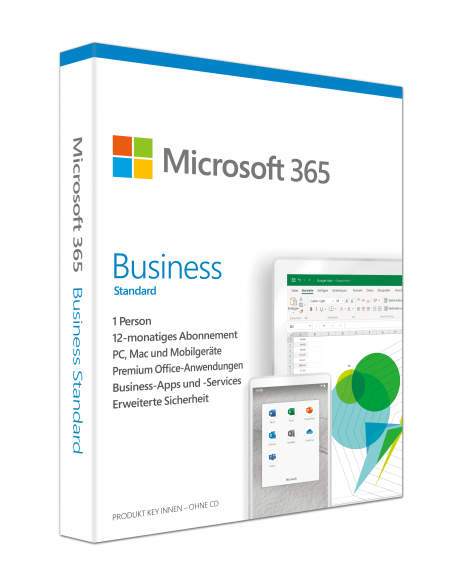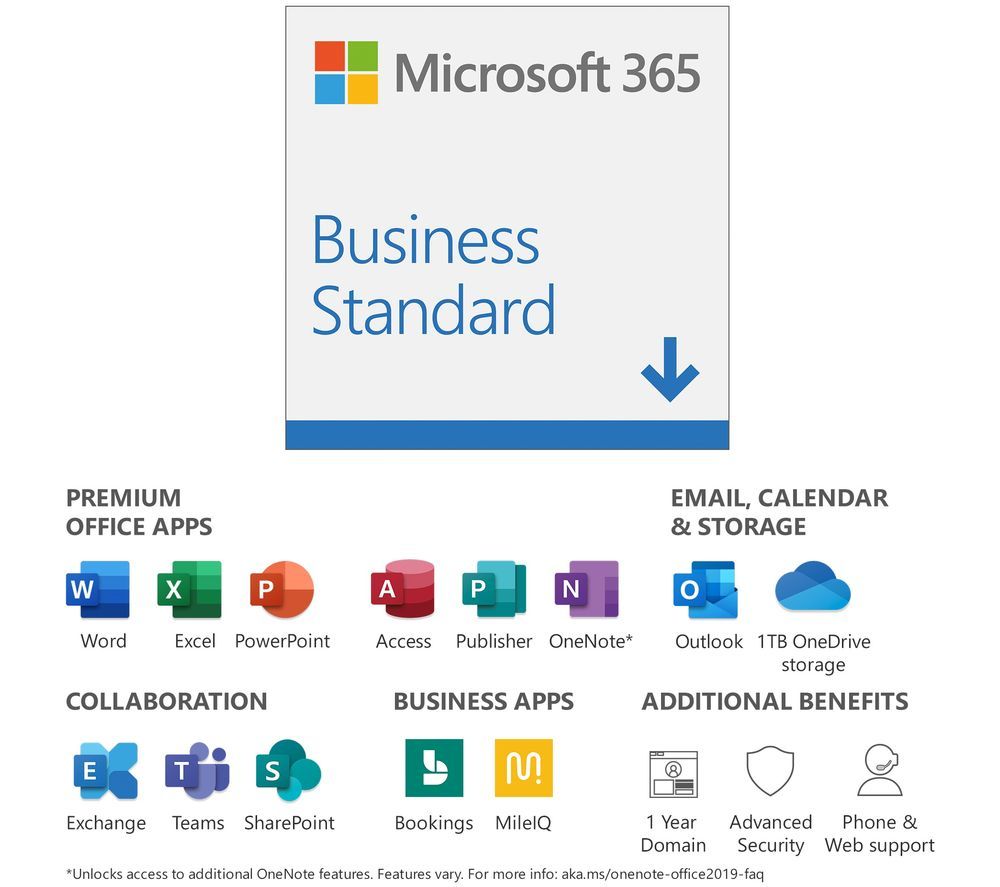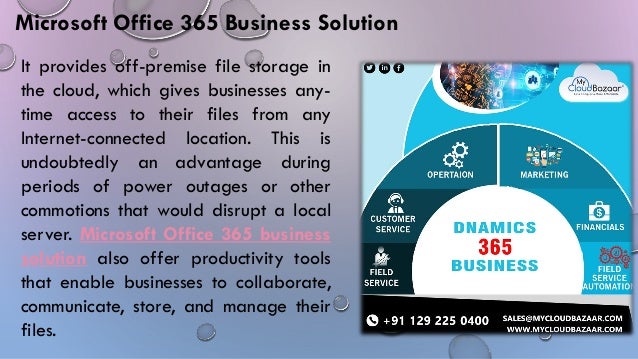- Microsoft Office For Business
- Download Office 365 Business Premium
- Ms Office 365 Business Basic
- Ms Office 365 Business Account
- Ms Office 365 Business Premium
- Ms Office 365 Business Standard
L da headtoucha too complex. Microsoft 365 was originally unveiled several years ago at Inspire 2017.An all-encompassing package that includes Office 365, Windows 10, and Enterprise Mobility + Security, the new offering debuted with two configurations positioned at different segments of the market: Microsoft 365 Business and Microsoft 365 Enterprise. Office 365 Business Premium is the fully stocked version of Office 365. With it, you get Microsoft's desktop apps, the web versions of Office, Microsoft Teams, business email support, 1 TB of.
- Our Microsoft 365 plans give you the ability to easily and securely share and collaborate on documents using OneDrive for Business and Online Office apps. With Online Essentials and Business Premium you can also create a domain-based email address and share calendars and contacts with people inside and outside of your company.
- Office 365 Business: This is a subscription-based version of Microsoft Office and is designed for organizations with 300 users or less and includes, 1TB of storage, basic data and app security and device management capabilities using Microsoft Intune and the Office 365 Suite, that includes the following.
Watch this video for an overview of Microsoft 365 Business Premium setup.

Add your domain, users, and set up policies
When you purchase Microsoft 365 Business Premium, you have the option of using a domain you own, or buying one during the sign-up.
- If you purchased a new domain when you signed up, your domain is all set up and you can move to Add users and assign licenses.
Add your domain to personalize sign-in
Sign in to Microsoft 365 admin center by using your global admin credentials.
Choose Go to setup to start the wizard.
On the Install your Office apps page, you can optionally install the apps on your own computer.
In the Add domain step, enter the domain name you want to use (like contoso.com).
Important
If you purchased a domain during the sign-up, you will not see Add a domain step here. Go to Add users instead.
Follow the steps in the wizard to Create DNS records at any DNS hosting provider for Microsoft 365 that verifies you own the domain. If you know your domain host, see also the host specific instructions.
If your hosting provider is GoDaddy or another host enabled with domain connect, the process is easy and you'll be automatically asked to sign in and let Microsoft authenticate on your behalf.
Add users and assign licenses
You can add users in the wizard, but you can also add users later in the admin center. Additionally, if you have a local domain controller, you can add users with Azure AD Connect.
Add users in the wizard
Any users you add in the wizard get automatically assigned a Microsoft 365 Business Premium license.
If your Microsoft 365 Business Premium subscription has existing users (for example, if you used Azure AD Connect), you get an option to assign licenses to them now. Go ahead and add licenses to them as well.
After you've added the users, you'll also get an option to share credentials with the new users you added. You can choose to print them out, email them, or download them.
Connect your domain
Microsoft Office For Business
Note

If you chose to use the .onmicrosoft domain, or used Azure AD Connect to set up users, you will not see this step.

To set up services, you have to update some records at your DNS host or domain registrar.
The setup wizard typically detects your registrar and gives you a link to step-by-step instructions for updating your NS records at the registrar website. If it doesn't, Change nameservers to set up Microsoft 365 with any domain registrar.
If you have existing DNS records, for example an existing web site, but your DNS host is enabled for domain connect, choose Add records for me. On the Choose your online services page, accept all the defaults, and choose Next, and choose Authorize on your DNS host's page.
If you have existing DNS records with other DNS hosts (not enabled for domain connect), you'll want to manage your own DNS records to make sure the existing services stay connected. See domain basics for more info.
Follow the steps in the wizard and email and other services will be set up for you.

Protect your organization
The policies you set up in the wizard are applied automatically to a Security group called All Users. You can also create additional groups to assign policies to in the admin center.
On the Increase protection from advanced cyber threats, it is recommended that you accept the defaults to let Office 365 Advance Threat Protection scan files and links in Office apps.
On the Prevent leaks of sensitive data page, accept the defaults to turn on Office 365 Data Loss Prevention (DLP) to track sensitive data in Office apps and prevent the accidental sharing of these outside your organization.
On the Protect data in Office for mobile page, leave mobile app management on, expand the settings and review them, and then select Create mobile app management policy.
Secure Windows 10 PCs
On the left nav, select Setup and then, under Sign-in and security, choose Secure your Windows 10 computers. Choose View to get started. See secure your Windows 10 computers for complete instructions.
Deploy Office 365 client apps
If you chose to automatically install Office apps during setup, the apps will install on the Windows 10 devices once the users have signed in to Azure AD from their Windows devices, using their work credentials.
Script for 18 candles in debut. To install Office on mobile iOS or Android devices, see Set up mobile devices for Microsoft 365 Business Premium users.
You can also install Office individually. See install Office on a PC or Mac for instructions.
See also
If you are a company, Office 365 has long been offered in two types of packages: Office 365 Business (for “Small Business”), and Office 365 Enterprise (for “Enterprise”). Even though both of these types of offerings give you access to basic functionality, there are some big — and small — differences between Office 365 Business and Office 365 Enterprise.
In this blog article, I’m going to explain the major factors that will help you decide between using an O365 Enterprise plan vs an O365 Business plan. For an overview, check out the comparison table.
Keep in mind that there are several sub-options within each type (Enterprise and Business), so there will be some further evaluation to do. We’ve written blog articles that will help you make your choice within the specific Business and Enterprise products.
In addition to those articles, we have created a special tool that will help you choose between all seven versions of Office 365. Based on a short questionnaire, it will recommend the best product for you requirements. Please try it out!
O365 Business or Enterprise: Instant Recommendation

Which one should you choose? Use our tool and we'll generate an instant recommendation and price quote.
You may also have heard about Microsoft 365 Business, which is the new naming for the Office 365 Business offers. However, most customers and consultants still call it Office 365.
Also, the names for Office 365 Enterprise plans have not changed.
Office 365 Business Versions
There are three versions of Office 365 for small businesses. You might be attracted to these plans because they tend to be a little bit less expensive, while still offering basic functionality.
The most important thing to remember about Office 365 Business is that you can only purchase one of these plans if you’re going to be getting 300 seats or less. If that’s you, there is a plan of Office 365 Business that covers most basic needs. The particular plan you choose will mostly depend on whether or not you need email, and whether or not you want to install the applications on your computer. You can read more here, or try out our recommendation tool to figure out which Office 365 Business version is right for you.
Office 365 Enterprise Versions
There are also three versions of Office 365 for enterprise companies. These plans tend to be a little more expensive, but they do offer some additional functionality.
Importantly, these plans allow you an unlimited number of seats.
Depending on your business requirements, Office 365 Enterprise plans can also provide the following features:
- Unlimited OneDrive storage
- Analytics tools, including Power BI Pro
- Huge Skype Meetings: 250 – 10,000 people (this functionality is part of Teams)
- Using Skype/Teams as a phone system
- Phone numbers for dial-in Skype/Teams meetings
Final call web series episode 5. Office 365 Enterprise plans are also known for their additional security, compliance, and administration features:
- Custom retention policies
- Data loss prevention
- Advanced search and legal hold abilities
- Advanced threat protection (for example, against malware and phishing attacks)
- Advanced information protection (for sensitive emails, documents, and other data you need to share outside your company)
- Advanced data privacy agreements
Those capabilities are why leaders in finance, health care, and other companies often choose Enterprise even if they are well below 300 users.
To see which of these features are included in which Enterprise plans, read our Office 365 Enterprise plan comparison. Or ask us any licensing questions.
Or you can of course try out the recommendation tool.
O365 Business vs Enterprise: Comparison Table
| Feature | Business | Enterprise |
| Maximum Seat Count | 300 | Unlimited |
| Email/Calendars | Some Plans | All Plans |
| Online Office Apps | All Plans | All Plans |
| Install Office Apps | Some Plans | Some Plans |
| Advanced Admin and Security Features | Some Plans | |
| Advanced Skype Features (within Teams) | Some Plans | |
| Price ($/User/Month) | $5 – $12.50* | $8 – $35 |
Which One Is Right For You?
Once you establish how many seats you need (more or less than 300), and you decide on your budget, your options can narrow down pretty quick.
Download Office 365 Business Premium
Most companies that need to enable remote work end up going with Office 365 Business Premium (now called Microsoft 365 Business Standard) or Office 365 E3, depending on their seat count or budget.
Also, take a look at the extra features available in the Office 365 Enterprise plans, and decide if the additional functionality is worth the extra cost. Most companies that need enhanced security & data protection features choose E3 or E5.
Ms Office 365 Business Basic
For a personalized recommendation, check out our recommendation tool. It consolidates all of the decision-making criteria across all seven Office 365 versions, and provides you with your best fit. There is a lot to consider, so if you have any questions please feel free to contact us with the form below.
Ms Office 365 Business Account
* All pricing is subject to change without notice. Contact Encore for the most current pricing.
Ms Office 365 Business Premium
O365 Business, Premium, Essentials: Instant Recommendation
Ms Office 365 Business Standard
Which one should you choose? Use our tool and we will generate an instant recommendation and price quote.
